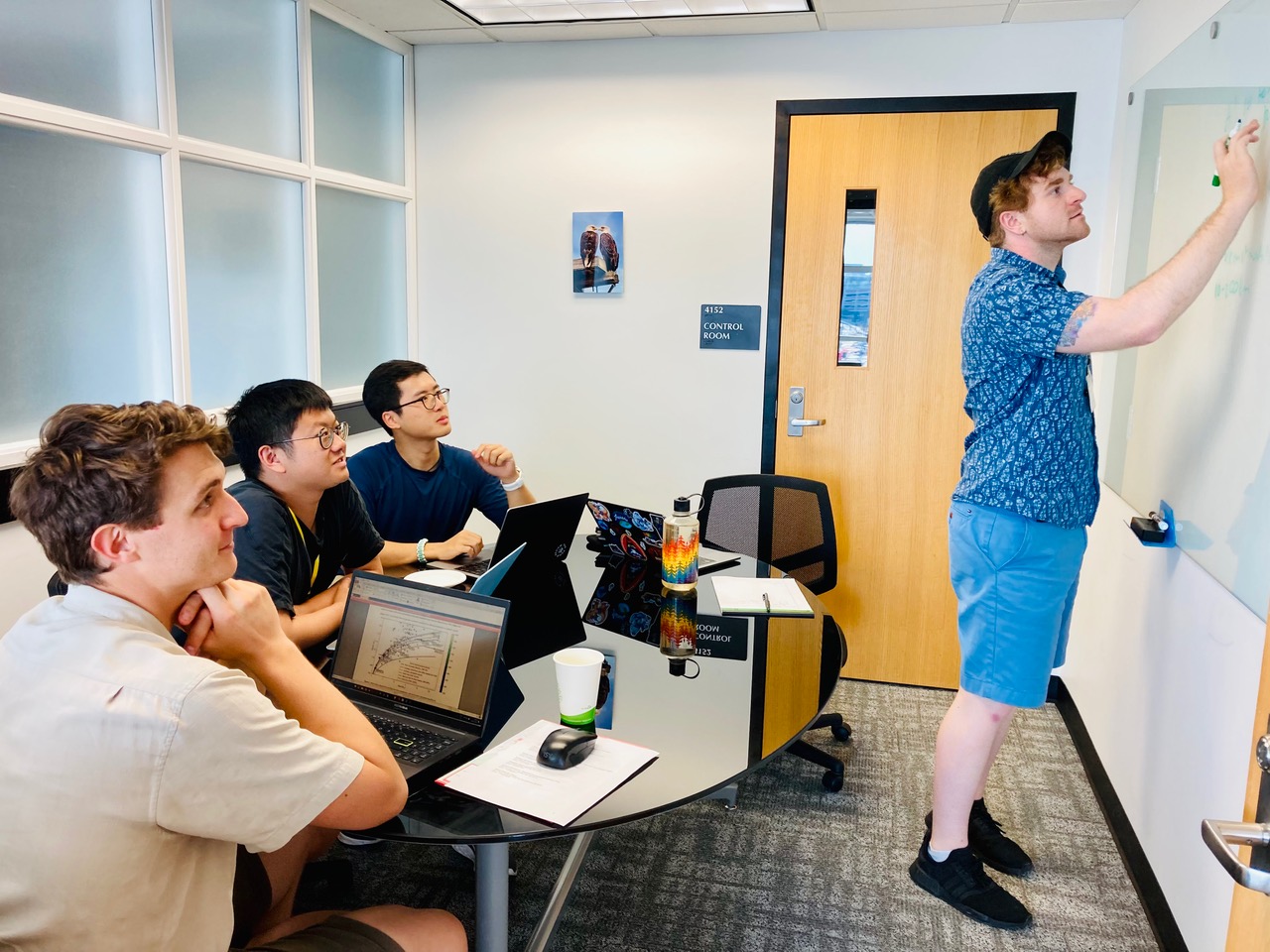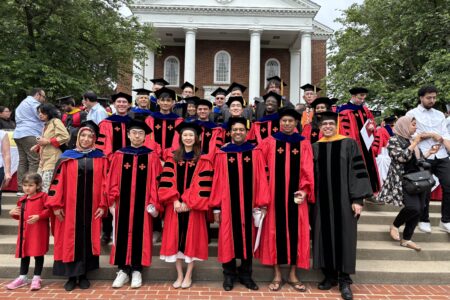Isabel Fernandez was working in a postbaccalaureate position at the National Institute of Mental Health when she was introduced to neuroscience research.
“It was there that I found a new interest in machine learning techniques and their pivotal role in understanding the brain,” she says. “My work at the National Institutes of Health (NIH) led me to my current research where I use neural networks to understand the brain’s visual system.”
Today, she is in her third year pursuing a PhD in Applied Mathematics & Statistics, and Scientific Computation (AMSC) at the University of Maryland (UMD). She describes the AMSC programme as “the perfect fit” for her. “AMSC stood out to me for its diverse range of research fields and connections,” she says. “The proximity to Washington, DC, added another layer of opportunity, providing access to organisations like the NIH. What truly sealed the deal for me, however, was the genuine warmth and support I felt from both the students and faculty at AMSC when I came to visit.”

In the classroom, you can choose from a large selection of courses for the mandatory requirements and individualised study plans and pathways to fulfil credit requirements. Source: University of Maryland
Graduate programmes with “structured flexibility”
Ranked 15th nationally, the AMSC graduate programme is housed within the Department of Mathematics. Two other math graduate programmes offered at UMD include: Mathematics (MATH) (ranked 20th nationally and sixth among public universities) and Mathematical Statistics (STAT). The university itself is placed #44 among national universities (US News & World Report) and #17 among public schools (2025 “Best Colleges” guide).
Across all three programmes within the department, students enjoy an approach of “structured flexibility.” This means students can customise an educational path according to their interests. For example, Fernandez is combining machine learning with her neuroscience research. The interdisciplinary approach is an advantage for students to be exposed to theoretical mathematics and also its applications.
“I find the interactions between pure and applied math in the UMD Mathematics Department mutually enriching,” says award-winning (2024 European Mathematical Society Prize) professor Dr. Adam Kanigowski. “Often, new discoveries are made at the intersection of these fields, and the interdisciplinary nature of the department provides an excellent platform for this to happen.”
Together with faculty advisors, students curate an educational route that introduces new modes of thinking while diving deep into advanced topics. While students spend significant time on campus –whether that be in classes, seminars, or delving into research with faculty– advisors strongly encourage students to pursue off-campus opportunities to put their knowledge into practice.
Students in the UMD Mathematics Department work with exceptional faculty members like Dr. Kanigowski, who are top researchers in their respective fields. Other notable faculty members include department chair Doron Levy (2014 Guggenheim Fellow), Brin Chair Professor Artem Chernikov (2013 Sacks Prize), Distinguished University Professor Eitan Tadmor (2015 Henrici Prize, 2022 Wiener Prize), and professor Maria Cameron (DARPA Young Faculty Award).
Broad range of core courses, individualised study plans
Within the classroom setting, students select from a wide range of core and specialised courses, crafting a study plan tailored to their unique research interests and academic goals. Students discover fields of math not covered in most undergraduate programmes, encouraging a synthesis of theoretical approaches from multiple areas. There are introductory courses covering different sub-fields of mathematics as well as diverse topic courses that dig deep into faculty research. In topic courses, graduate students explore mathematical questions facing the modern world, with hard-hitting implications for global phenomena such as artificial intelligence, climate change, and epidemiological modelling.

Outside the classroom, students are encouraged to join many activities at the Brin Mathematics Research Centre, present at conferences, and more. Source: University of Maryland
Experiential learning opportunities within and beyond campus
Outside the classroom, graduate students in the UMD Department of Mathematics have access to the Brin Mathematics Research Centre, where sponsored activities in all areas of pure and applied mathematics and statistics take place. Students are encouraged to attend conferences, workshops, special lecture series, and summer schools to not only enhance what is learned in class but also to build scholarly networks with visitors. “The Brin MRC provides extraordinary opportunities to start new collaborations or to expand existing ones,” professor and Director of AMSC, Dr. Radu Balan, says. “External collaborators can be brought in as visitors for periods ranging from a few days to a few months, or even an entire year.”
Not only does the department bring experts to campus to give talks, but it also provides financial support to students presenting at conferences outside of the university. Conferences are wonderful opportunities for scholars to share ideas and practise communicating complex topics to an unfamiliar audience. Department sponsored travel funding enables students to boost their presentation skills and public mathematical profile, giving them an edge for their post-graduate career.
Graduates of the Department of Mathematics have a particular advantage in their career search due to the department’s strategic location. Located near government agencies like NASA, the National Institute of Health, and the Food and Drug Administration, UMD alumni will have access to these renowned research organisations through pre-established partnerships with the Department of Mathematics. The University of Maryland is not just focused on the present; the Department of Mathematics prepares graduates to take an active role in shaping the future of the field.
Follow the Department of Mathematics at the University of Maryland on X.












